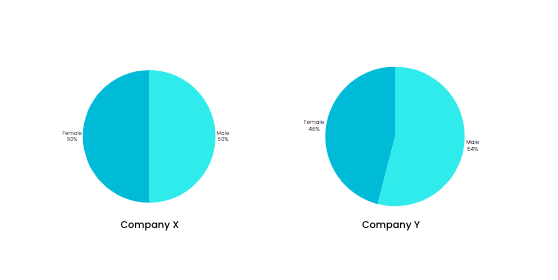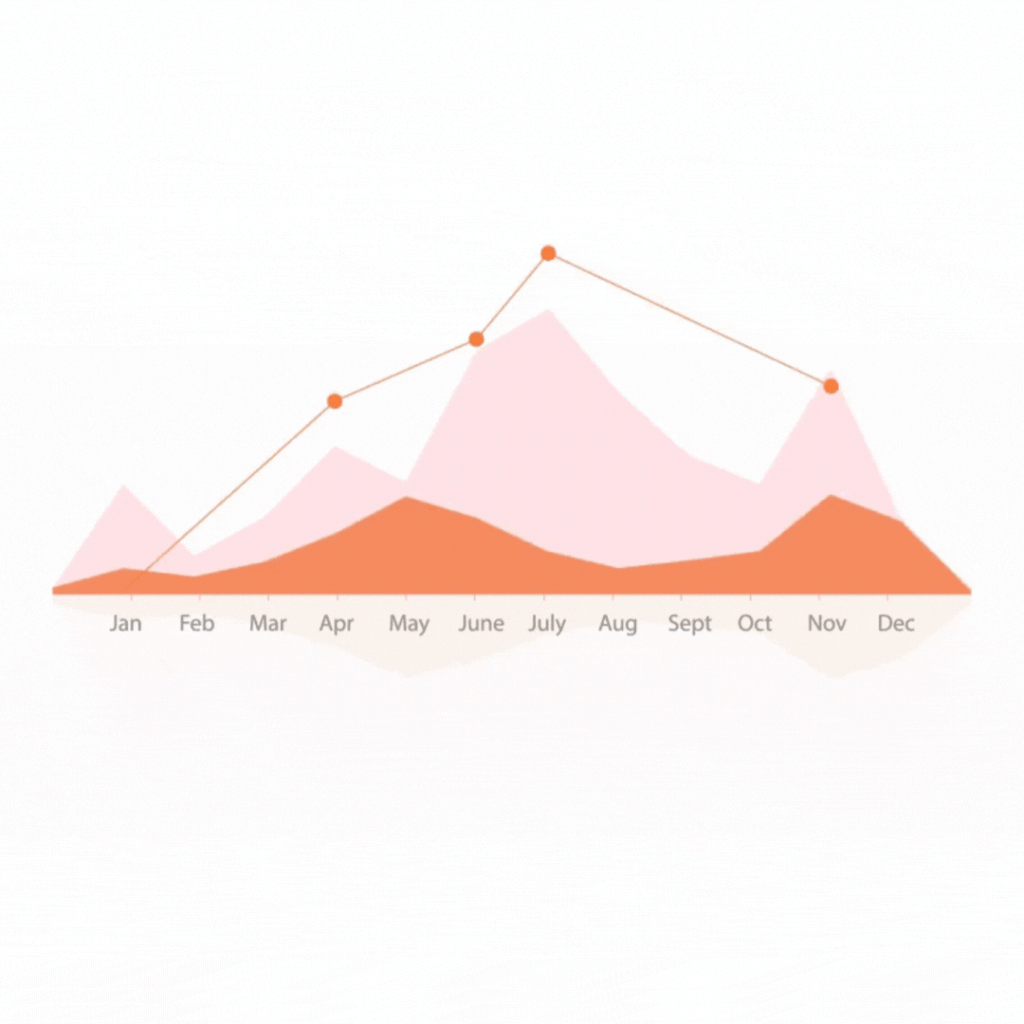Think of an organisation’s efforts to promote diversity and inclusion as a garden. It would be equivalent to planting seeds without understanding the soil composition or the amount of sunlight present, without pertinent data and knowledge. Data acts as a gardener’s toolkit by providing insights into the unique needs of individual plants and enabling precise management intended to support a dynamic and diversified environment.
Why is data so important in the effort to be inclusive?
Measuring DEI is as important as the revenue and inventory indicators businesses closely monitor to maintain efficiency. DEI metrics are more than simply feel-good measurements; they are effective instruments that show the landscape of an organization as it is today and its advancement toward DEI. Organisations may pinpoint areas for development and make well-informed decisions that will ultimately result in more inclusivity by using data-driven insights.
Consider an example :
Imagine two companies, X and Y, both with 100 employees.
Both companies proudly show a balanced gender ratio. At first glance, diversity seems well-balanced.

A closer look reveals that this equity might not be all it seems.
People praise Company X for its gender equality, but there are concerns about its leadership team being too similar and coming from historically advantaged backgrounds.

Company Y seems less diverse at first glance of its workforce. But when we delve into their leadership representation, a different picture emerges. Y boasts a wide variety of backgrounds within its leadership team.

This is where diversity’s actual essence manifests itself. It goes beyond head counts. It is about acknowledging the multiple facets of an individual’s identity and ensuring that all levels and organisational procedures are inclusive.
But what needs to be measured?
On this path, outcome measures are quite necessary. They act as a lighthouse, highlighting bias and creating a standard by which advancement is evaluated. However, focusing only on outcome measures offers a constrained perspective. They point out an issue but cannot explain its existence or offer a solution. For DEI initiatives to be genuinely advanced, businesses must go further with process measurements.
Process measures fill in the gaps by identifying issues with hiring, evaluating, promoting, and executive sponsoring, among other employee-management procedures. These measures shed light on the underlying causes of inequity and provide helpful information for focused responses. Data enables firms to take concrete actions like improving executive sponsorship, resolving discrepancies in promotion rates, and uncovering unfair hiring practices.
Data can turn the story from meaningless narratives to tangible facts. We can reveal hidden disparities by examining survey, interview, and focus group data. This degree of transparency reveals disparities like unequal promotion rates or biased performance reviews that may have previously gone unnoticed. It offers leadership vital viewpoints and ignites a sincere desire to grow as an organization.
But simply gathering data is insufficient. We must use it as a diagnostic tool rather than merely a status check to realize its potential fully. Using this data-driven approach, we can create focused initiatives with quantifiable results that show where policies, anti-bias training, or targeted workshops can close the gap.

Inclusion cannot thrive on good intentions alone, it needs evidence, accountability, and continuous learning. Data serves as the foundation upon which truly equitable workplaces are built. Just as a gardener uses soil analysis to nurture every plant, organisations must use DEI data to understand the realities of their workforce and design interventions that foster belonging at every level.
When used thoughtfully, data transforms DEI from a symbolic effort into a strategic priority. It helps leaders see what’s working, what isn’t, and, most importantly, why. By tracking both outcomes and processes, organisations move beyond surface-level diversity metrics toward real inclusion, where opportunities, recognition, and growth are equitably distributed.
However, data is only as powerful as the intent behind it. It must be used ethically, transparently, and with empath, not to label or divide, but to listen and evolve. The goal is not just to prove diversity exists, but to ensure it thrives. When organisations learn to read their DEI data like a gardener reads the soil, they can cultivate workplaces where every individual — regardless of background, identity, or lived experience — can take root, grow, and flourish.
Serein’s DEI SaaS tool provides a complete solution for pursuing a data-driven DEI approach. Beyond only offering outcome metrics, Serein’s platform gives organizations access to the process metrics and relevant tactics needed to bring about focused, significant change. For more details on the transformative potential of Serein’s DEI SaaS tool, contact us at hello@serein.in


